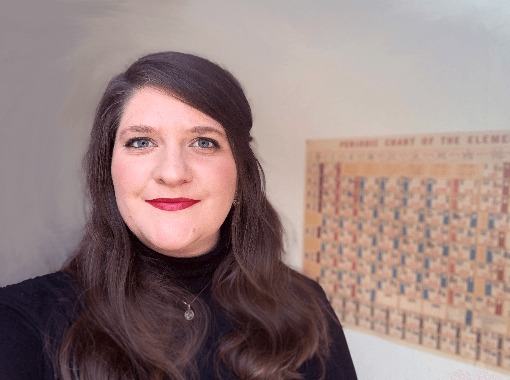Doctoral defence in Chemistry - Lindsey Jean Monger

Askja
Room 132
The defence will be streamed live
Ph.D. student: Lindsey Jean Monger
Dissertation title: Synthesis of Tripeptides, Pd(II) and Ni(II) Complexes and their Potential Use in Activation of Small Molecules
Opponents: Dr. Marc Devocelle, Professor at the Royal College of Surgeons, Dublin, Ireland
Dr. Elzbieta Gumienna-Kontecka, Professor at the University of Wroclaw, Poland
Advisor: Dr. Sigríður G. Suman, Professor at the Faculty of Physical Sciences
Doctoral committee:
Dr. Krishna K. Damodaran, Professor at the Faculty of Physical Sciences, University of Iceland.
Dr. Stefán Jónsson, Manager at Alvotech
Chair of Ceremony: Dr. Einar Örn Sveinbjörnsson, Professor and the Head of the Faculty of Physical Sciences, University of Iceland
Abstract:
The use of protecting groups on amino acid and peptides affords opportunities to change preferred coordination behaviors to metal centers. Alkylating the C-terminus carboxylate allows directed tripeptide coordination, forming tetradentate κ4[NH2,N,N,=O] complexes. Changing tripeptide composition enables the formation of chelates of various ring sizes, and depending on the N-terminus side chains, tetradentate κ4[n,5,5] (where n = 5, 6, 7, or 8 membered rings) coordination geometries can be achieved.
The alkylated tripeptide compounds α-Asp(OtBu)AlaGly(OMe), β-Asp(OtBu)Ala-Gly(OMe), TrpAlaGly(OMe), HisAlaGly(OMe), and γ-Glu(OMe)Cys(SMe)Gly(OMe) were synthesized as ligands to coordinate to palladium and nickel to form neutral tetradentate complexes. The coordination of select alkylated tripeptides to palladium was first established by potentiometric and NMR spectroscopic data. pH-dependent complexation was analyzed and coordination properties to [Pd(en)(H2O)2]2+ were inferred from their NMR spectra. Building on aqueous NMR studies, Pd(II) complexes with the tripeptides α-Asp(OtBu)AlaGly(OMe), β-Asp(OtBu)AlaGly(OMe), and TrpAlaGly(OMe) were synthesized and characterized. The ligands form tri- and tetradentate complexes with Pd(II). For tridentate coordination complexes, ligand exchange reactions, occupying the fourth coordination sphere, showed that sufficiently labile ligands may be removed to form the tetradentate coordination mode, which adopt a square planar geometry with tetradentated ligands. The complex coordination geometry was established using 1H and 13C NMR, and infrared spectroscopy, and supported using DFT calculations. Reactivity of palladium tripeptide complexes with small molecules such as ethylene, acids, CO and formates, and episulfides were investigated. Complexes were found to be rather inert towards ethylene coordination and decompose in acid and under acidic conditions; in the presence of ethylene, acetaldehyde was formed only after complex decomposition. Reactivity with CO and CO surrogates such as formates results in the dissociation of the ligand and reduces the metal to Pd(0). Pd(II) is a soft Lewis acid and thiophilic; when reacted with thiirenes, Pd-tripeptide complexes abstracted sulfur from the episulfide at modest catalytic rates.
Ni(II) complexes with the ligands, α-Asp(OtBu)AlaGly, β-Asp(OtBu)AlaGly, and TrpAlaGly were synthesized and characterized using infrared and 1H, 13C NMR spectroscopy, mass spectrometry and elemental analysis. The complexes were predicted using DFT calculations to have square planar geometries. The esters of these ligands proved highly pH sensitive and hydrolyze fully at moderately basic conditions. The electrochemistry of the complexes was investigated in water to reveal irreversible redox behavior of all three complexes.
About the doctoral candidate
Lindsey Monger grew up in Wyoming, USA. She received her Bachelor's Degree at the University of Wyoming in Laramie, WY, USA in 2010. She began her Master's Degree at the Ruhr Universität Bochum and transferred to Iceland in 2015, where she began her doctoral studies under the supervision Sigríður Suman, Professor at the Faculty of Physical Sciences.
Lindsey Jean Monger



